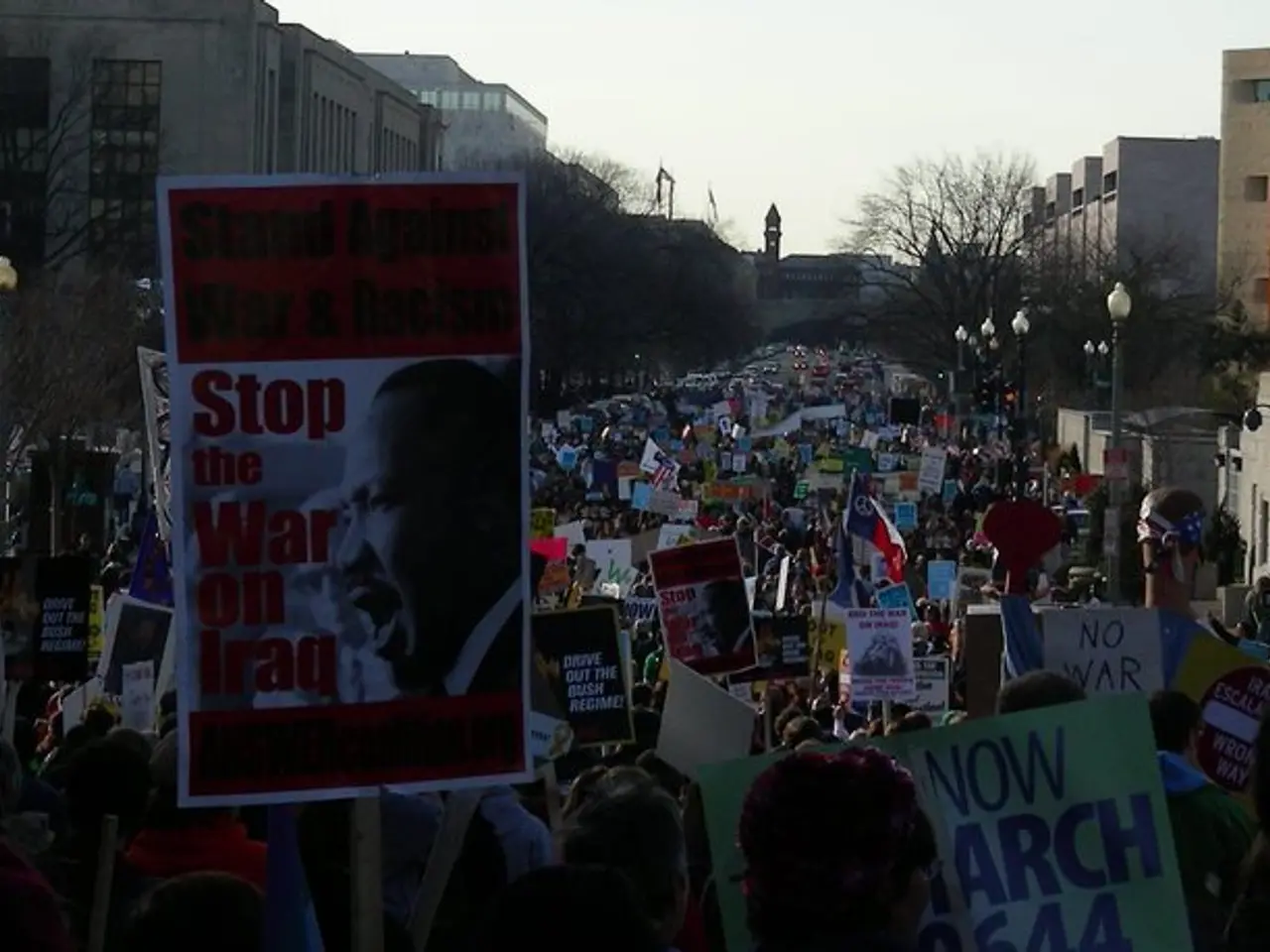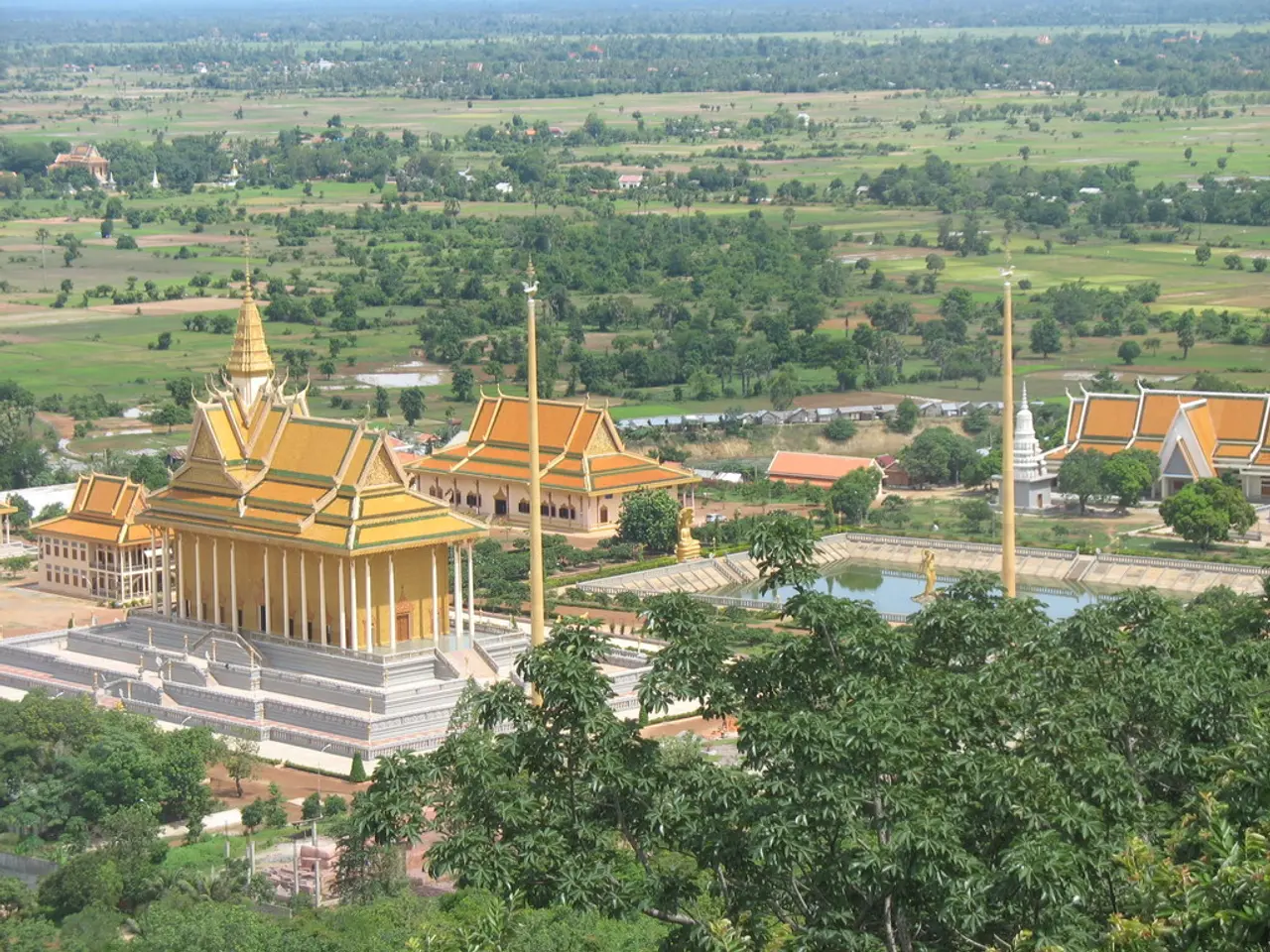Rights of sexual minorities under threat
Revised Article:
In July of this year, the United States is shuttering a youth-focused service for the LGBTQ+ community within its national emergency suicide prevention hotline, known as the 988 Suicide & Crisis Lifeline. This decision, made in June, marks a concerning shift in support for the community and underscores a troubling trend in global LGBTQ+ rights.
This step is part of the Trump administration's policy, which, since one of the first executive orders signed by the President, has limited recognition to only two genders: male and female. It's important to note that this stance has also led to the U.S. withdrawing from the group of UN countries that support LGBTQ+ rights, back in February.
Unfortunately, the US isn't the only country moving backward on LGBTQ+ rights. The past year has seen a deterioration in the rights of the rainbow community in numerous countries that historically respected them. The annual map compiled by ILGA, the international association for lesbians, gays, bisexuals, trans, and intersex people, reveals a gloomy picture: 64 UN member states where being gay is a crime, with seven of them imposing the death penalty for consensual same-sex acts.
Moreover, laws, regulations, and policies that limit freedom of expression related to sexual diversity and gender persist in at least 61 states, while legal barriers to freedom of association for organizations that openly support LGBTQ+ rights exist in the same number of states.
Anti-homosexuality measures have tightened in various countries in the past few years. For instance, Mali's new penal code punishes consensual acts between adults of the same sex, while an amendment to Burkina Faso's "family code" has made homosexuality illegal. In Uganda, a new law was passed in 2024, providing for imprisonment for those who identify as gay.
There's a mixed bag of situations in Europe. On one hand, countries like the Netherlands and Malta offer almost total equality, while, on the other, countries like Hungary witness a persistent reduction in the rights of the LGBTQ+ community. After the 2021 law banning the dissemination of information and publications on homosexuality or gender change in schools, Hungary recently passed a law banning pride events.
The situation in Romania ranks the worst in the ILGA-Europe list, with Poland closely following despite a slight improvement due to the elimination of "LGBT ideology-free zones" that led to discriminatory policies in many municipalities six years ago. However, while Budapest is under special observation, the EU is divided on the matter. Twenty EU countries have signed a declaration condemning the democratic regression of the Budapest government towards the LGBTQ+ community, but Bulgaria, Croatia, Romania, Slovakia, Poland, and Italy refrained from signing.
The global political landscape for the LGBTQ+ community is a complex and polarized web, marked by significant advancements in some countries alongside restrictive measures in others. In 2025, only 38 of 195 countries worldwide have recognized same-sex marriage. While judicial progress has been made in countries like Liechtenstein, Thailand, Japan, and Lithuania, there's a growing trend of legal restrictions and rollbacks in others, such as the US, Uganda, and Ghana.
Violence against LGBTQ+ individuals remains distressingly high, particularly across the Americas. Despite progressive laws in some countries like Colombia, Mexico, and Brazil, discrimination persists deeply. Nearly two-thirds of LGBTQ+ adults in the US report personal experiences of discrimination, with Gen Z reporting even higher rates. These findings underscore the ongoing challenges facing LGBTQ+ communities around the world.
- The Trump administration's policy-and-legislation, which limits recognition to only two genders, has been a contentious issue in the broader context of politics, contributing to a concerning shift in the general-news landscape regarding LGBTQ+ rights.
- The global political landscape for the LGBTQ+ community, as evidenced by the annual map compiled by ILGA, is marked by a mixture of policy-and-legislation that advances rights, such as the recognition of same-sex marriage in some countries, and war-and-conflicts, as seen in the criminalization of consensual same-sex acts and the imposition of the death penalty in several UN member states.








